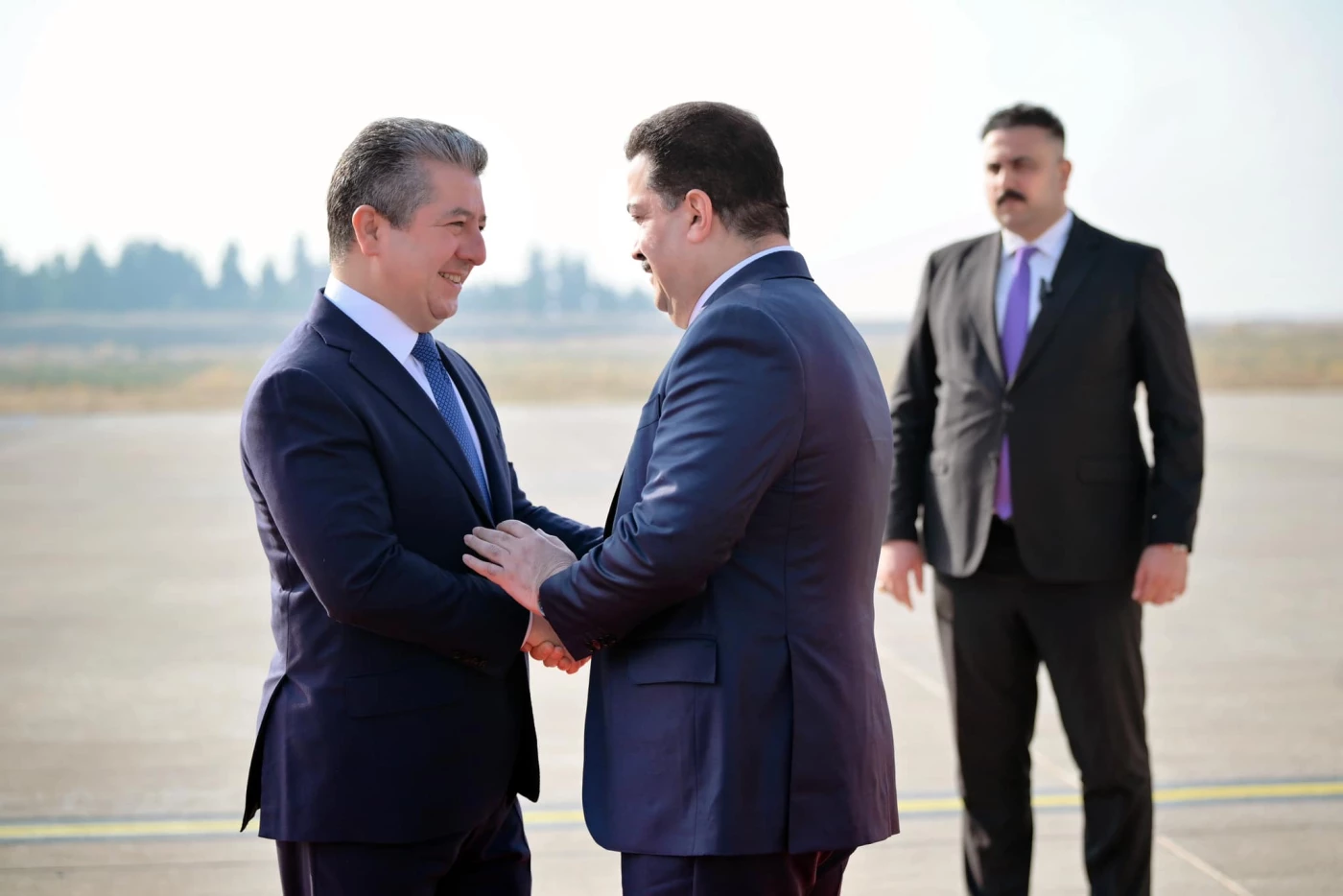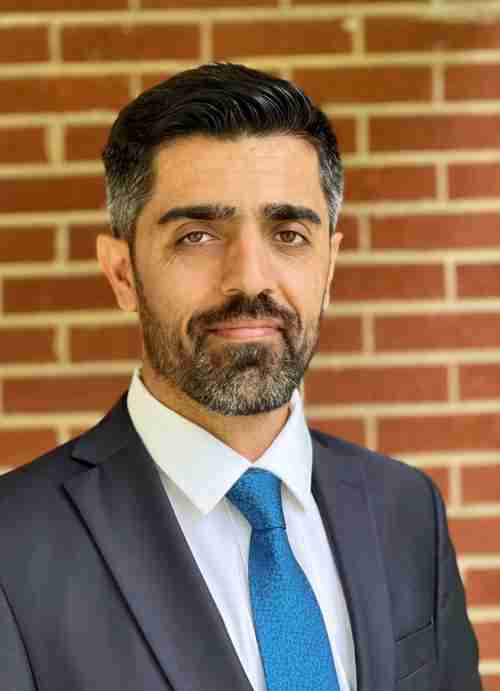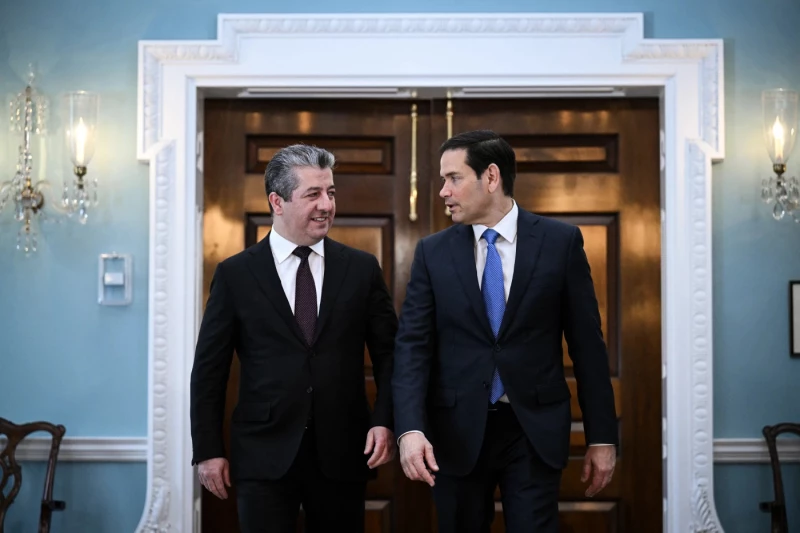Over the past week, two key knots in the Erbil-Baghdad relationship — oil and salaries — were loosened, offering a basis for optimism, albeit a cautious one, in the strained ties between the Kurds and the federal government in recent years.
The first breakthrough came on February 2, when the Iraqi Parliament voted to amend three clauses of paragraph C of Article 12 of the Iraqi Budget Law (2023-2025). The amendment raised the fee for oil produced by international oil companies (IOCs) from $6 to $16 per barrel, a rate deemed acceptable by the IOCs. The amendment stipulates that this rate will hold until a specialized international consulting firm, agreed upon by both the Kurdistan Regional Government (KRG) and the federal government, is assigned within 60 days after the law is passed to assess and provide a reasonable compensation estimate for IOCs operating in the Kurdistan Region’s fields.
The second breakthrough was an agreement on February 3 between a KRG delegation led by Finance Minister Awat Sheikh Janab with the Iraqi finance ministry to disburse KRG salaries for 2025 "without any issues," as Janab told reporters. Since 2014, the KRG has struggled to regularly pay its 1.2 million employees, pensioners, and social benefit recipients after Baghdad cut its share of the Iraqi budget in response to the Region's independent oil sales through a pipeline to Turkey’s Ceyhan port.
The oil issue became particularly contentious after the KRG's oil exports through Turkey were halted following a ruling by the International Chamber of Commerce's International Court of Arbitration in March 2023. Prior to that, Iraq's Federal Supreme Court had abolished the Kurdistan’s oil and gas law in February 2022 — a controversial decision criticized by the KRG and others.
Under the amended Budget Law, the KRG must hand over 400,000 barrels of oil per day to the federal State Organization for Marketing of Oil (SOMO) for either export or domestic use. If these conditions are met, the Iraqi government will allocate approximately 20 trillion Iraqi dinars ($15 billion) to the KRG in its 2025 budget, with around $1.5 billion expected to go toward IOC production fees.
The Budget Law, however, does not in and of itself guarantee the resumption of KRG oil exports, as the process involves multiple steps. The Association of the Petroleum Industry in Kurdistan (APIKUR) acknowledged the budget amendment as a positive step but said it was now focusing “on reaching agreements to restore oil exports through the Iraq-Turkey pipeline.” APIKUR represents eight major international oil companies operating in the Region.
Jamal Kochar, a Kurdish MP in Iraqi Parliament from the opposition-oriented Kurdistan Islamic Union (KIU), told me that "the current deal is in KRG's interest," particularly given the $16 per barrel compensation granted to IOCs. However, he warned that a key challenge lies in the KRG's ability to meet the requirement of supplying 400,000 barrels per day. Additionally, the KRG's regular receipt of salaries depends on whether it hands over 50 percent of its domestic revenues to Baghdad — a longstanding point of contention between the two sides.
According to the energy industry website MEES, the Kurdistan Region's average oil production in 2024 stood at around 290,000 barrels per day — well below the 400,000-barrel target mandated by the budget law. Before the pipeline shutdown in 2023, KRG production was just under 450,000 barrels per day. It remains to be seen if the reopening of the Turkey export pipeline might well incentivize the IOCs to get production to the 400,000 barrels per day figure or close to it.
From discussions with officials and experts, it appears that shifting regional dynamics played a decisive role in Baghdad's acceptance of the $16 rate. The ruling Shiite Coordination Framework finds itself in a risky position following setbacks for Iran's regional axis in Lebanon, Syria, and Gaza over the past year. Additionally, there is growing speculation in Iraq that the country is increasingly on the radar of the new Donald Trump administration due to Baghdad’s ties with Iran, raising concerns over the potential termination of US waivers that allow Baghdad to import Iranian gas and electricity.
The influence of these pressures was apparent in the remarks of the Coordination Framework MP Uday Awad, who said in an interview with local media that the issue of IOC fees is distinct from that of KRG salaries, asserting that it was about "American companies wanting their money,” and that “the KRG imposed a fait accompli [on Baghdad]” regarding its contracts with IOCs. This suggests an attempt by Baghdad to deflect US pressure, as Washington has long pushed for the resolution of the IOC issue and the resumption of KRG oil exports. The new US administration seems determined to exert financial pressure on Baghdad, as evidenced by the maximum pressure memorandum signed by President Donald Trump on February 4, aimed at preventing Iraq’s financial system from being used by Iran to evade sanctions.
Baghdad's acceptance of the $16 production fee underscores that the issue has always been more political than technical. If Baghdad is now showing flexibility, the other steps — such as negotiating a fair share of oil sales for IOCs and securing Turkey's agreement to reopen the pipeline — should not present insurmountable obstacles. Iraq's previous insistence that Turkey pay the $1.5 billion fine imposed by the ICA proved to be another unrealistic demand that has ultimately cost over $25 billion in lost revenue due to the suspension of KRG oil exports.
As light appears at the end of the tunnel, an important responsibility falls on the KRG. A decade of financial and economic volatility has made governance increasingly difficult in the Kurdistan Region, further eroding public trust in government and political leaders. It is crucial that the KRG makes every effort to fulfill its commitments under the budget law and salary agreements. Failing to do so will only deepen public frustration, fueling further unrest and instability while creating opportunities for exploitation by actors in Baghdad and beyond. Ongoing financial turmoil will jeopardize the very survival of the Kurdistan Region as a political entity. KRG’s task in this regard is certainly far from easy. A drone attack on the Region’s largest gas production site, the Khor Mor field, on the same day the budget was passed signaled the willingness of rogue actors to target the Region’s energy sector and economy. Kurdish security sources have blamed pro-Iran militias for the attack.


 Facebook
Facebook
 LinkedIn
LinkedIn
 Telegram
Telegram
 X
X



